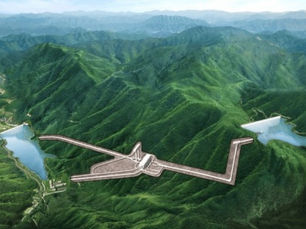EBRD Supports Uzbekistan's 200 MW Solar Plant and 500 MWh Battery Storage
- Energy Box

- Jul 9, 2024
- 2 min read
The European Bank for Reconstruction and Development (EBRD) is playing a pivotal role in Uzbekistan’s ambitious renewable energy targets by financing a landmark project comprising a 200 MW solar photovoltaic power plant and a 500 MWh battery energy storage system (BESS) in the Tashkent region. This initiative, spearheaded by ACWA Power Riverside Solar, marks one of the largest BESS projects supported by the EBRD within its operational economies.
The project aims to contribute significantly to Uzbekistan’s goal of developing up to 25 GW of solar and wind capacity by 2030, crucial for enhancing the country’s energy security and reducing dependency on carbon-intensive thermal power generation. Once operational, the solar facility is expected to generate approximately 418 GWh of electricity annually, slashing annual CO2 emissions by over 230,000 tonnes.
Funding for the project includes an A-loan of up to US$ 183.5 million (€169.8 million) from the EBRD, alongside a B-loan of up to US$ 40.5 million (€37.5 million) syndicated to commercial co-financiers. Additionally, the EBRD has mobilized €5 million (US$ 5.4 million) from Finland under its High Impact Partnership on Climate Action (HIPCA), ensuring robust financial support for the venture.
Key financing partners include the German development corporation DEG, the French development agency Proparco, the Islamic Development Bank, KfW IPEX-Bank, and Standard Chartered Bank, all contributing parallel loans to bolster the project’s implementation.
Nandita Parshad, Managing Director of the EBRD’s Sustainable Infrastructure Group, emphasized the strategic significance of the Tashkent Solar PV and energy storage project, stating, “This project is fundamental to Uzbekistan’s drive to install 25 GW of renewables by 2030. It not only supports energy security but also accelerates the transition to a low-carbon economy.”
Marco Arcelli, CEO of ACWA Power, echoed this sentiment, highlighting Uzbekistan’s proactive stance in attracting private capital for sustainable growth and decarbonization. “The Tashkent Riverside project reflects strong confidence in ACWA Power as a global leader in renewables and energy storage,” he affirmed, underscoring ACWA Power’s commitment to Uzbekistan’s green energy future.
Uzbekistan remains a pivotal focus for the EBRD’s investments in Central Asia, with approximately €4.7 billion deployed across 162 projects to date, primarily supporting private entrepreneurship and sustainable development initiatives.
This collaborative effort underscores Uzbekistan’s strides towards achieving its climate goals and fostering economic resilience through renewable energy infrastructure.















Comments